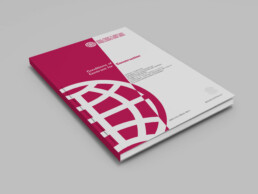
If an Employer sets off a sum of money in a way that it is not entitled to do, it is likely to impact on the Contractor’s cash flow and may give the Contractor a right to suspend or reduce the rate of working. In extreme circumstances, it may also entitle the Contractor to terminate.
Unfortunately, under the FIDIC Red and Yellow Books 1999, the right of an Employer to set off from an amount already certified in a Payment Certificate but unpaid is inexplicit.
Once the Employer has a Sub-Clause 3.5 determination, it may ask the Engineer to deduct the amount determined from the next Payment Certificate. This is clear.
But rather than rely on the Engineer, can the Employer instead, itself, deduct by way of set off from an amount already certified in a Payment Certificate but unpaid? This is not clear.
Sub-Clause 2.5 states:
“The amount [determined under Sub-Clause 3.5] may be included as a deduction in the Contract Price and Payment Certificates. The Employer shall only be entitled to set off against or make any deduction from an amount certified in a Payment Certificate, or to otherwise claim against the Contractor, in accordance with this Sub-Clause”.
What does this wording mean and why does it matter?
Why does it matter?
It matters to the Contractor because it may impact on cash flow.
It matters to the Employer because under the FIDIC Red and Yellow Books 1999, if the Employer sets off against, or makes any deduction, when it is not entitled to do so, then this will be treated as non-payment of a sum due under the Payment Certificate and will (if the non-payment is not remedied in time) give the Contractor the right to suspend or reduce the rate of working under SubClause 16.1.
It might even entitle the Contractor to terminate under Sub-Clause 16.2.
Further, the Employer may be liable to pay damages for breach of contract.
What does it mean?
The wording of Sub-Clause 2.5 is imprecise, and leaves open the question of whether an Employer is, or is not, entitled to set off from an amount already certified in a Payment Certificate but unpaid.
Position 1: The Employer cannot itself set off from an amount certified in a Payment Certificate.
Position 1 is that an amount of money determined by the Engineer (under Sub-Clause 3.5) to be due to the Employer, can be included by the Engineer as a deduction in the next Payment Certificate but cannot be set off by the Employer from an amount already certified in a Payment Certificate but unpaid.
In other words, besides the Contract Price, only a Payment Certificate can be used for making a deduction from an amount certified. This can only be done by the Engineer and not by the Employer.
The rationale is that it is, for the Engineer, to administer the Contract and to record such deductions in the Payment Certificates.
There should be no risk to the Employer. If the Engineer has determined that an amount of money is due, then it ought to have no cause not to include it as a deduction in the next Payment Certificate.
It has been noted that although the wording of SubClause 2.5 states that (with emphasis added):
“The Employer shall only be entitled to set off against … from an amount certified in a Payment Certificate, or to otherwise claim against the Contractor, in accordance with … [Sub-Clause 2.5]”,
there is, in fact, no provision in Sub-Clause 2.5 giving the Employer an express right of set off beyond the Engineer’s power to include deductions in the Payment Certificates i.
Professor Nael Bunniii appears to support this position. He states:
“There are four options that may apply after a determination. These are as follows:
- The employer could ask the engineer to deduct the amount in his calculation of the next payment certificate.
- The employer could ask the engineer to deduct the amount from a sum payable under a payment certificate.
- The employer could ask the engineer to make a separate claim against the contractor for payment.
- Either party may contest the determination”.
Option (1) applies if a Payment Certificate has not yet been issued.
Option (2) applies if a Payment Certificate has already been issued which should have had a deduction made but did not. Then the Engineer should issue a corrected Payment Certificate showing the necessary deduction. The Engineer may do so under the final paragraph of Sub-Clause 14.6 of the FIDIC Red and Yellow Books 1999, which deals with corrections and modifications to previous Payment Certificatesiii.
The FIDIC Contracts Guideiv commentary on SubClause 2.5 (with emphasis added) says:
“In the case of a payment having been claimed [by the Employer], the Engineer may include it as a deduction in Payment Certificates. Under Sub-Clause 14.7, the Employer is required to pay the amount certified (namely, incorporating this deduction), but is not entitled to make any further deduction. If the Employer considers himself to be entitled to any payment under or in connection with the Contract, he is thus required to follow the procedure prescribed in Sub-Clause 2.5, and is not entitled to withhold payment whilst awaiting the outcome of these procedures”.
The FIDIC Contracts Guide commentary on SubClause 14.6 continues:
“The Employer is […] bound by the Certificate, and must make payment in full, irrespective of any entitlement to compensation arising from any claim which the Employer may have against the Contractor. If the Employer considers himself entitled to claim against the Contractor, notice and particulars must first be submitted under Sub-Clause 2.5. The Employer’s entitlement is then to be agreed or determined, and incorporated as a deduction in a Payment Certificate”.
Sub-Clause 14.7 expressly requires the Employer to pay to the Contractor: “the amount certified in each Interim Payment Certificate…”. There is no express right of set off in Sub-Clause 14.7 (although, as highlighted under Position 2, nor is there any express exclusion of such).
Sub-Clause 14.8 gives the Contractor the right to receive financing charges if it does not receive payment in accordance with Sub-Clause 14.7. There is no express right of set off in Sub-Clause 14.8 (nor express exclusion of such).
Sub-Clause 16.1 gives the Contractor the right to suspend work (or reduce the rate of work) if the Employer fails to comply with Sub-Clause 14.7. There is no express right of set off in Sub-Clause 16.1 (nor express exclusion of such).
Sub-Clause 16.2 entitles the Contractor to terminate if (with emphasis added): “(c) the Contractor does not receive the amount due under an Interim Payment Certificate … (except for deductions in accordance with Sub-Clause 2.5 [Employer’s Claims])”. But this simply takes the reader back to the ambiguous wording of Sub-Clause 2.5.
Of course, the rights of set off are often dependant on the applicable Laws (including the governing
law). Under English law, set off is a defence and a general right unless expressly excluded or reduced – although a clear intention is required before a contract can be properly interpreted as excluding set offv.
The wording at Sub-Clause 2.5 is such an express exclusion. One legal text statesvii:
“The authors consider the draftsman intended that any rights of set off that may exist under the governing law would be excluded by operation of Sub-Clause 2.5 (20.2(G)). For example, Sub-Clause 2.5 of the Red, MDB and Yellow Books provide: “The Employer shall only be entitled to set off against or make any deduction from an amount certified in a Payment Certificate … in accordance with this Sub-Clause”.
In the FIDIC 2017 editions, Sub-Clause 20.2.7 is very similar:
“The Employer shall only be entitled to claim any payment from the Contractor and/or to extend the DNP, or set off against or make any deduction from any amount due to the Contractor, by complying with this SubClause 20.2”.
In FIDIC 2017 A Practical Legal Guide by Corbett & Covii, Gabriel Mulero Clas writes:
“The purpose of this provision is to exclude the right of set off a Party will normally have under the governing law of the Contract”.
Another legal text viii says this wording in the FIDIC 2017 forms is:
“a general failsafe mechanism to ensure that the Employer does not make unauthorised deductions from the payments due to the Contractor”.
Position 2: The Employer can itself set off from an amount certified in a Payment Certificate.
Position 2 is that an amount of money determined by the Engineer (under Sub-Clause 3.5) to be due to the Employer, can be set off by the Employer from an amount already certified in a Payment Certificate but unpaid.
In essence, if the Engineer has determined that the amount is due (under Sub-Clause 3.5), why can’t the Employer just take its money? Why must it rely on the Engineer to first make the deduction in the Payment Certificate?
The point has been madeix that as the wording in Sub-Clause 2.5 refers not to a deduction in a Payment Certificate, but to a deduction from an amount certified in a Payment Certificate, it may be said that FIDIC intended for the Employer to have a right to set off against the amounts certified by the Engineer, which is different to the Engineer’s power to include deductions in a Payment Certificate.
Another legal text states x:
“The Employer cannot make any deduction by way of set off or any other claim unless it is in accordance with the Engineer’s Determination”,
suggesting that an amount of money which is determined by the Engineer to be due to the Employer, may be set off by the Employer from an amount certified in a Payment Certificate, although it
does not explicitly say so. Sub-Clause 14.7 expressly requires the Employer to “pay” to the Contractor: “the amount certified in each Interim Payment Certificate…”. The obligation to “pay” does not exclude payment by way of set off.
Set off is recognised in the termination Sub-Clause 16.2(c) through its reference to: “deductions in accordance with Sub-Clause 2.5”. But, as stated above, this takes the reader back to the ambiguous wording of Sub-Clause 2.5. Might it be argued that, because of this wording, set off is permissible in the event of termination but not in the event of suspension under Sub-Clause 16.1 or payment under Sub-Clauses 14.7 and 14.8?
There is case law to suggest that Sub-Clause 2.5 is not an express exclusion to the general right of set off. In the case of NH International (Caribbean) Ltd v National Insurance Property Development Company Ltd (Trinidad and Tobago)xi the arbitrator took the view that Sub-Clause 2.5 could not prevent an employer raising a set off to any claim by the contractor. The arbitrator stated:
“I agree ….that clear words are required to exclude common law rights of set off and/or abatement of legitimate cross-claims, and in my view such set off/abatement should be taken into account in the final reckoning following the termination. The terms of clause 2.5 do not prevent this” xii.
The arbitrator found that Sub-Clause 2.5 did not bar the employer’s counterclaims, because the words of Sub-Clause 2.5 were not sufficiently clear to exclude common law rights of set off. That decision was upheld in the High Court of Trinidad and Tobago and the Court of Appeal. However, the Privy Council took a different view, finding that the clause was effective to bar the Employer from setting off its cross claims.
In an Interim Award in ICC Case 11813 (London, 2002), a claim was made against an Employer for unpaid certified sums under the FIDIC Yellow Book Test Edition 1998. The Employer raised, as a defence, a claim for liquidated damages and asserted that as a matter of English law (particularly the principle enunciated in Gilbert-Ashxiii), it was entitled to raise a defence of set off except where such rights were expressly excluded. The arbitral tribunal found that there was nothing within the contract that excluded the Employer’s right to set off. The wording of Sub-Clause 2.5 in the FIDIC Yellow Book Test Edition 1998 had omitted the key sentence: “The Employer shall only be entitled to set off against or make any deduction from an amount certified in a Payment Certificate … in accordance with this Sub-Clause”. In the circumstances, the arbitrator permitted the Employer to advance its set off claim.
Conclusion
The wording of Sub-Clause 2.5 is ambiguous and the right of an Employer to set off from an amount already certified in a Payment Certificate but unpaid is unclear.
If you are an Employer, you may wish to amend the provisions of Sub-Clause 2.5 so that nothing within Sub-Clause 2.5 shall be construed as preventing any right of set-off or cross-claim; and to maximise your protection, you must get advice before setting-off from an amount certified in a Payment Certificate.
If you are a Contractor, you may be entitled to suspend or terminate, and/or have a claim for damages for breach of contract.
i Ellis Baker, Ben Mellors, Scott Chalmers, Anthony Lavers, FIDIC Contracts: Law and Practice (Routledge 2009), page 340 paragraph 6.307.
ii Nael G. Bunni, The FIDIC Forms of Contract, Third Edition (Blackwell Publishing 2005), pages 521-522
iii See also Sub-Clause 14.3 (g) of the FIDIC Red and Yellow Books 1999, which demonstrates the implications of any deduction made in a Previous Certificate on Sub-Clause 14.3 if the Contractor does not agree with that deduction
iv International Federation of Consulting Engineers, The FIDIC Contracts Guide: Conditions of Contract for Construction, Conditions of Contract for Plant and Design-Build, Conditions of Contract for EPC/Turnkey Projects (International Federation of Consulting Engineers 2000).
v Gilbert Ash v Modern Engineering [1974] AC 689; NEI Thompson v Wimpey Construction UK (1987) 39 BLR 65; Acsim v Danish Contracting (1989) 47 BLR 55.
vi Ellis Baker, Ben Mellors, Scott Chalmers, Anthony Lavers, FIDIC Contracts: Law and Practice (Routledge 2009), page 435, paragraph 8.148.
vii Corbett & Co, FIDIC 2017: A Practical Guide (Corbett & Co, 2020), page 522
viii Ben Beaumont, FIDIC Red Book: A Commentary (Informa Law from Routledge, 2019), page 333
ix Ellis Baker, Ben Mellors, Scott Chalmers, Anthony Lavers, FIDIC Contracts: Law and Practice (Routledge 2009), page 340, paragraph 6.307.
x Jeremy Glover, Understanding the New FIDIC Red Book: A Clause-By-Clause Commentary (Sweet & Maxwell 2006), page 52, paragraph 2-040.
xi See NH International (Caribbean) Ltd v National Insurance Property Development Company Ltd (Trinidad and Tobago) [2015] UKPC 37 (6 August 2015) at [36-38].
xii Paragraph 53.4.3.
xiii Gilbert-Ash (Northern) Ltd v Modern Engineering (Bristol) Ltd [1974] AC 689

Author:
Victoria Tyson
Profile
Contact:
victoria.tyson@howardkennedy.com
Date:
March 2022
Related articles
January 28, 2023
Escalating construction costs under FIDIC: is Sub-Clause 13.8 an answer?
Under existing contracts, an employer will not want to pay more for the works. But forcing a…
January 18, 2023
FIDIC 2022 Reprints: 10 Key Areas Of Change In The FIDIC Red Book 2017
FIDIC ‘launched’ the FIDIC 2022 reprints at the FIDIC International Construction Users’ Conference…



